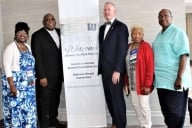You have /5 articles left.
Sign up for a free account or log in.
Shira Lurie is a PhD candidate in Early American History at the University of Virginia. Her research focuses on popular political conflicts over the American Revolution’s legacy in the early republic. You can follow her on Twitter and on her blog.
Humanities programs have encountered decades of difficulty justifying a liberal arts degree to students and, often, their fee-paying parents. It is hard to compete with the attractive jobs being offered in fields like computer science and medical research. Indeed, the appeal of a clear career path - an engineering major becomes an engineer, for example - has risen in tandem with tuition costs. And now humanities scholars face yet another obstacle: the Trump era.
In a world gone mad, it seems like the height of luxury to sit in an ivory tower reading books all day. And in some ways, it is. But I think there is a strong case to make for the importance of a liberal arts education in the age of Trump. In fact, I think now is the time to double down on the humanities.
Throughout the election and the weeks afterward, we witnessed the rise of “fake news” and a politics of illusion. It seems clear that the years ahead will feature more of the same. Now, more than ever, we need citizens who have the ability to think critically about the information with which they are presented. The humanities teach students to analyze arguments based on the strength of their evidence, to recognize the difference between a reliable and an unreliable source, and to spot logical fallacies, problematic biases, and false narratives. This is the exact toolbox of skills necessary to combat the “truthiness” of politicians and the media.
The liberal arts also encourage students to critically engage with the structures of power that shape our world. In doing so, students learn to see society through different lenses and imagine themselves into the experiences of others. For instance, a literature class focused on feminist theory may expose the ways in which gender has naturalized unequal power relations - that certain “masculine” traits like strength and aggression have been historically linked to positions of power, thereby creating the illusion that men are biologically predetermined to rule. Similarly, a history class on the Spanish Empire may reveal to students the multi-faceted legacies of imperialism that reverberate into our present day. In these ways and beyond, liberal arts students learn to discern the many roots of injustice and, what is more, empathize with those who do not share their identities. Such an education will hopefully encourage citizens to be skeptical of politicians’ narratives that attempt to smoothly link poverty with immorality, crime with race, terrorism with religion, and disenfranchisement with incompetence.
A humanities education also gives students access to historical precedents with which to contextualize current events. Of course we can all think of various horrific occurrences in the past that we fear the Trump presidency may echo. But history also provides some more inspiring examples for our present moment: the countless times when oppressed people, in the words of Howard Zinn, “showed their ability to resist, to join together, occasionally to win.” History shows that what people say and do can promote change, even if they do not hold traditional positions of power. Or, as Stephanie McCurry has put it, once in awhile “history opens up, resistance prevails, and the usually powerless manage against all imaginable odds to change the world." A lesson worth the price of tuition, at least.
But if only one argument for the power of a liberal arts education in the years to come is to be made, perhaps it is that Trump does not want Americans to have it. During the campaign, Trump developed a student loan policy that would disadvantage those seeking a liberal arts degree. While his campaign justified these terms based on the alleged poor job potential of humanities graduates, perhaps the Trump team also fears what we already know: that a thoughtful, empathetic, and engaged population will be more likely to resist an unjust regime.
For a great starting place, check out the Trump Syllabus 2.0 put together by N.D.B. Connolly and Keisha N. Blain.
How do you envision the role of the humanities under Trump? Let us know your thoughts, but please keep the conversation civil!
[Image courtesy of Flickr user João Martinho and used under the Creative Commons license.]








